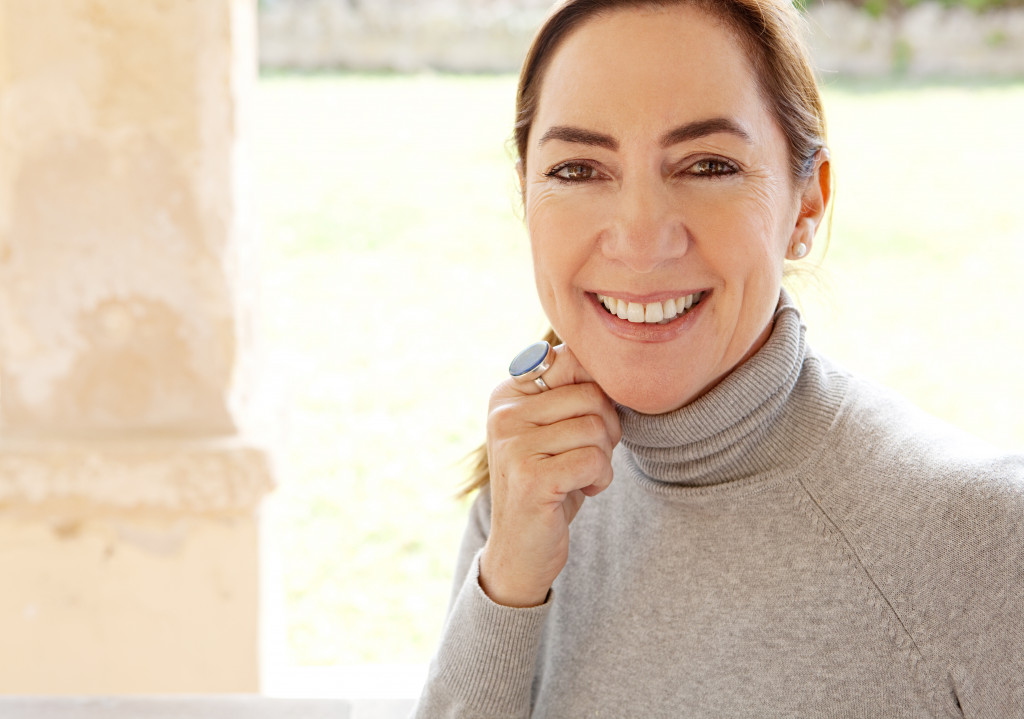With age comes the natural body changes. You start losing muscle mass when you turn 30. You get poorer vision. And you have a more challenging time remembering things. While all these are inevitable, there are ways you can maintain your independence and lessen the chances of chronic illnesses when you get much older. If you are a 40-year-old woman, here are things you should watch out for:
Dental Health
The importance of oral health does not decline with the progression of age. You can be 80 years old and still need dental implants. Remember that your teeth are not only there for aesthetics. They contribute a lot to the quality of your life.
Imagine giving up your favorite food because you cannot chew properly. Investing in your oral health should start as early as possible. At 40, visiting a dental clinic every six months is still necessary.
You should still come in for regular cleaning and scaling. If you got dental fillings some years ago, it might be time to redo them. They wear out over time. They may crumble or fall out. You must also watch out for more serious oral health concerns such as oral cancer, which commonly starts around the age of 40.
Breast Health
Women of all ages should perform regular breast self-exams. However, when you reach the age of 40, you should include mammograms in your yearly health checks. According to the National Cancer Institute, one out of seven women get breast cancer.
While mammograms and all kinds of checkups don’t prevent diseases, they boost your chances of early detection. When cancer is detected early, you get a higher chance of treating it. Checkups also help you detect predisposition to the disease, prompting you to have lifestyle changes as early as possible.
Heart Health

Heart disease stays the leading cause of death among women in the United States. This is the reason why establishing a healthy physical routine in the years leading to your forties is key to maintaining good heart health.
However, at age 40, it’s not yet too late to start embracing a healthier lifestyle for your heart. A study by John Hopkins Medicine shows that practicing a healthy lifestyle for six years, even when you are middle-aged, can significantly improve your heart health. Doing healthy practices like exercising can substantially reduce your risk of heart failure.
Bone Health
When you are in the menopause stage, your body produces less estrogen. Levels of estrogen affect your bone mineral density. Therefore, you are more at risk for bone loss when you reach your forties.
Osteoporosis, a disease that causes bones to thin out, is common among women your age. Exercising and strength training will help your bones maintain their health. Include enough calcium in your daily diet or ask your doctor for calcium supplements if you think you need them.
Reproductive Health
Having a baby at age 40 has become more common than a few decades ago. It can be due to the choice of women to settle later in life. It can be because of your career or having to undergo fertility treatments.
While previous studies show that the best age for women to have babies is before the age of 35, through the help of technology, it is now generally safe to get pregnant at this age. However, there are still risks. With the close monitoring of doctors, they can help lessen these risks.
You should look out for high blood pressure with can cause pre-eclampsia. You should also watch out for gestational diabetes. Your baby can also be at risk of congenital disabilities. Again, close monitoring will help you avoid complications, so you don’t have to worry.
Menopause usually also kicks in at the age of 40. It can get uncomfortable with symptoms that include hot flashes, sleep problems, fatigue, mood swings, thinning of hair, and more.
When you are in menopause, you have to watch out for what you eat. Consume calcium-rich foods like cheese, milk, and yogurt. Get as much healthy sun exposure as you can. Your skin may not be as efficient in making vitamin D, which means you can reinforce it with supplements. Caffeine and alcohol can trigger hot flashes, so stay away from these two as much as you can.
You produce less estrogen, but you can compensate for it by eating food rich in phytoestrogens. These are soybeans, tofu, flaxseeds, and beans.
The older you get, the more you need to watch your health. The real journey should have started when you were much younger. But this doesn’t mean you cannot welcome a healthy lifestyle a little late in life.


